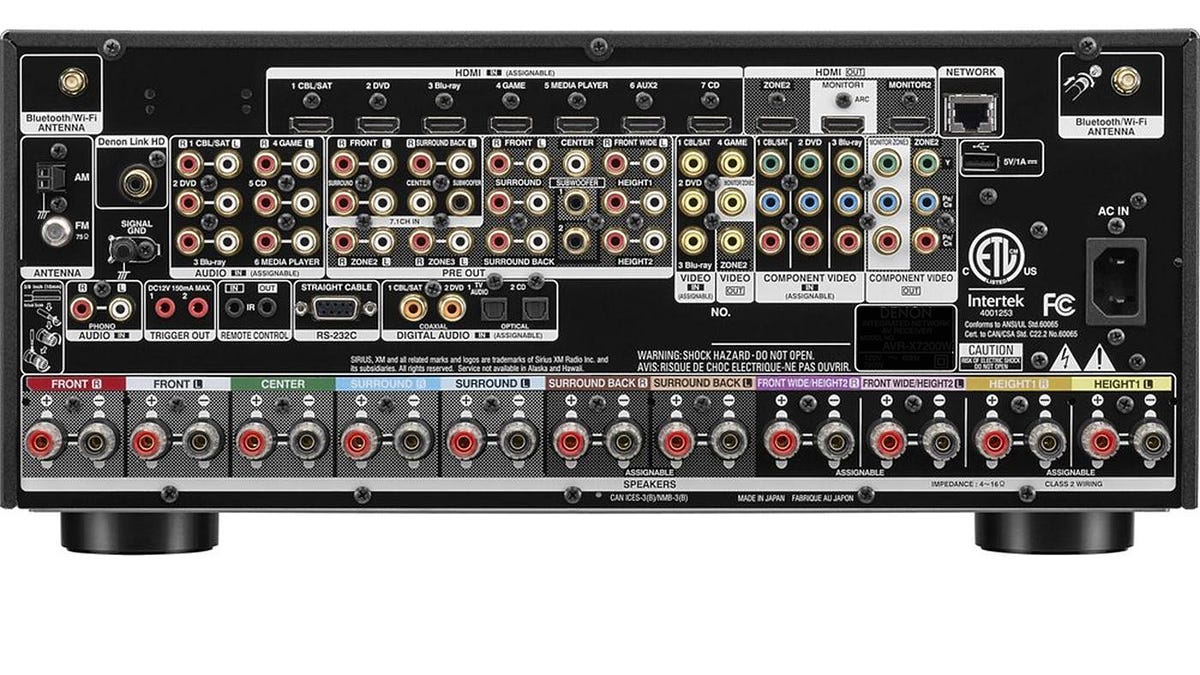Audio specifications: Which ones matter, which ones don't
The Audiophiliac breaks down specs into easy-to-understand language.

I'll start with the obvious: most audio specs are nearly useless to consumers -- frequency response, total harmonic distortion, slew rate, input sensitivity -- fuhgetaboutit. The most useful specs are the ones that average people understand, like the product's size (dimensions) and weight. Duhhh -- is the product too big or small for your needs? At home, heavier speakers and electronics at least imply better build quality than lighter ones. If it's a portable device, like a headphone, it's safe to say a 10-ounce (283 gram) headphone will likely be less comfortable than a 5-ounce (142 gram) one. Size and weight are easily the two most useful "specs" to average consumers; the rest of these have, at best, marginal significance.
What do those numbers mean, not much
Watts per channel
Sure, most of us want more, not less power, but the catch is there's no consistently reliable way for a consumer to find out an amp, receiver, or sound bar's true wattage. Most AV receivers only have power ratings for one or two channels driven, and no longer specify watts per channel for all (five, seven, nine, or more) channels driven. The single or two-channel power rating tells you nothing about a 7.1-channel receiver's true power output. Power specs like "Dynamic Power" or "Maximum Effective Output" are even less useful.
If the receiver or amp's wattage spec is accompanied by an impedance spec, for example, 100 watts for 8 ohm speakers, 160 watts per channel for 4 ohm speakers that's a better indication of power capability. Then again, even when the power rating is 100 percent accurate, how much louder would a 150-watt-per-channel amp play than a 100-watt amp? Only slightly louder -- you need to double or triple the power to make a meaningful difference in perceived maximum volume.
Fact is, most buyers never come close to running out of power, so unless you have a huge room and like to play rock or dance music at concert levels, don't worry about watts. On the other hand, if you occasionally feel the need to rock out or play movies so loud the walls shake, don't skimp on amplifier power, and buy large speakers. Real power won't come cheap, and large speakers are pricey.
Power handling
My take is the speaker "power-handling" spec is nearly useless for providing consumers with information that could lead to opting for one speaker over another. For example, what exactly does "power handling" mean? When a manufacturer claims their speaker has a 100-watt power-handling rating, can it be safely used with a 200-watt-per-channel amplifier? Or even a 500-watt amp? Yes -- just don't play the speakers too loud. If you start to hear distortion or the woofers are making thumping sounds, turn the volume down!
Right -- too much power can damage speakers, but what about too little? Running a 50-watt-per-channel amp with the same 100-watt-rated speakers won't guarantee they won't be harmed by playing them too loud. Bottom line: you can just as easily damage a speaker with too little power as too much.
Speaker driver size
At least as far as woofer drivers go, larger woofers are more likely to make more bass than smaller woofers. But other factors, such as the size of the speaker cabinet are nearly as important. The design and quality of the woofer might tilt the balance so much that a 6-inch woofer might make more and better quality bass than another brand's 8- or even 10-inch woofer. So once again, we learn that predicting sound quality solely from a spec is a fool's game.
Speaker impedance
I'm always receiving questions about speaker impedance -- they usually go something like this: "I'm interested in the Reference EX speakers, but they are 8-ohm speakers, and my AV receiver is rated at 100 watts per channel at 6 ohms. Will the Reference EX speakers work with my AV receiver?" The simple answer is yes. Any speaker rated at 6 to 8 ohms can safely be used with any receiver. No worries there.
Some high-end audiophile speakers with lower impedance ratings of 4 ohms will also likely be fine as well, unless you occasionally play music or movies at sustained high volume. When in doubt about any low-impedance (4 ohm or less) speaker's compatibility with a receiver, check with the speaker's and/or receiver's manufacturer.
Price
That's the one "spec" everybody understands.
Oh, and TV specs are even more baffling -- they're just a blizzard of marketing terms, buzzwords and hype.

